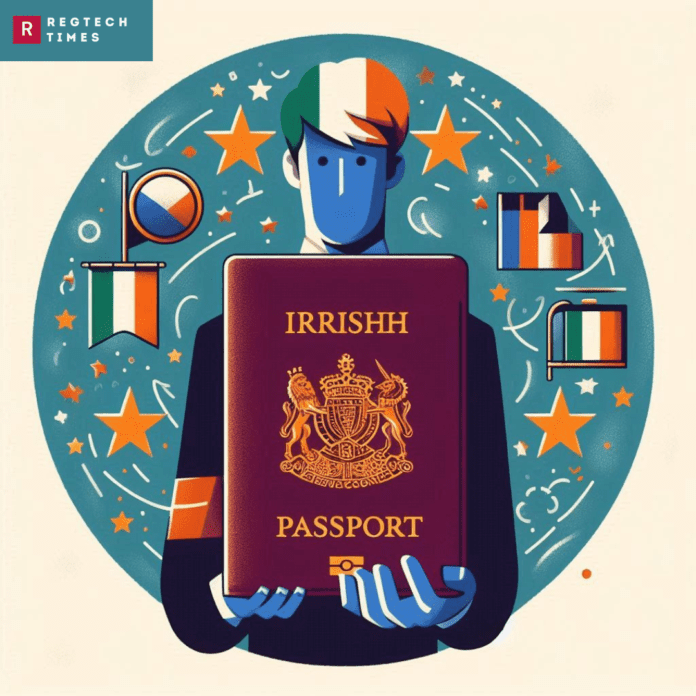Background and Case Overview
The Irish Court of Appeal has referred a crucial case to the Court of Justice of the European Union (CJEU) concerning the authority of the Minister for Justice to issue determinations on citizenship status. This case involves a man who, originally from outside the EU, obtained Irish citizenship following his marriage to a non-Irish EU national.
The man arrived in Ireland on a student visa more than ten years ago and married the EU national in 2010. This marriage enabled him to obtain a five-year residence card and eventually Irish citizenship in 2016, upon which his residency rights were based.
In 2019, complications arose when another non-EEA national claimed residency rights as the mother of an Irish citizen child, alleged to be fathered by the man. This triggered an investigation into the validity of the 2010 marriage and the circumstances surrounding it.
Ministerial Determination and Legal Challenge
The Minister for Justice raised concerns about the rapid development of the marital relationship, the absence of pre-existing relationship documentation, and economic activity in Ireland by the man’s EU national spouse. Additionally, the timing of the marriage relative to the expiration of the man’s student visa raised suspicions.
Based on these concerns, the Minister concluded that the marriage was one of convenience, suggesting that the man had provided false information to obtain residency and citizenship rights improperly.
The man challenged these determinations in the High Court, arguing that the Minister exceeded their authority and violated his rights as both an Irish and EU citizen. Despite his arguments, the High Court upheld the Minister’s decisions, prompting the man to appeal to the Court of Appeal.
Court of Appeal’s Consideration
The Court of Appeal, comprising Justice Una Ni Raifeartaigh, Justice Ann Power, and Justice Charles Meenan, scrutinized whether the Minister had the legal authority under the 2015 European Communities (Free Movement of Persons) Regulations to issue determinations affecting citizenship status post-naturalization.
Justice Ni Raifeartaigh clarified that the Minister’s decision did not revoke the man’s right of residence but constituted a determination on past conduct. The Court expressed skepticism regarding whether the 2015 Regulations empowered the Minister to make such retrospective determinations.
Referral to the CJEU
In a pivotal move, the Irish Court of Appeal referred key questions to the CJEU for clarification. They sought guidance on whether the 2004 EU Citizens’ Rights Directive, which guarantees free movement within the EU for EU citizens and their family members, applies to individuals who acquire citizenship through marriages of convenience.
This referral underscores the complexity of balancing national sovereignty with EU citizenship rights and seeks to establish uniformity in the interpretation and enforcement of EU laws across member states.
Implications and Future Considerations
The outcome of this case could significantly impact not only the individual’s citizenship status but also the broader application of EU laws on free movement and citizenship acquisition. It highlights the ongoing challenges in combating abuse of residency and citizenship rights within the EU.
As the case returns to the Court of Appeal for further consideration following CJEU guidance, attention remains focused on clarifying the scope of Ministerial powers under EU law and ensuring consistent application of citizenship determinations across member states.
This legal saga raises fundamental questions about the enforcement and interpretation of EU laws concerning free movement and citizenship acquisition, with potential implications for similar cases throughout the European Union. The forthcoming CJEU guidance will play a pivotal role in shaping future decisions and policies in this complex and evolving legal landscape.
Conclusion
In conclusion, this case before the Irish Court of Appeal highlights the intricate balance between enforcing national immigration laws and upholding EU citizenship rights. It states the challenges member states face in preventing abuse of immigration systems while ensuring fair treatment under EU law.
The referral to the CJEU reflects Ireland’s commitment to seeking clarity on EU directives regarding citizenship and residency. The CJEU’s forthcoming ruling will not only impact the outcome of this specific case but also establish a precedent for handling similar issues across the European Union.
For the individual at the center of this case, the CJEU’s decision will determine the validity of his acquired citizenship and residency rights, potentially influencing his future in Ireland and beyond. This case serves as a critical reminder to EU member states of the complexities involved in aligning immigration policies with EU principles.
As legal proceedings progress, stakeholders eagerly await the CJEU’s guidance, anticipating clarification on Ministerial powers and the application of EU citizenship rights, particularly in cases involving allegations of marriages of convenience. This case stands at the intersection of immigration law, EU citizenship, and judicial interpretation, shaping the legal landscape for years to come.


